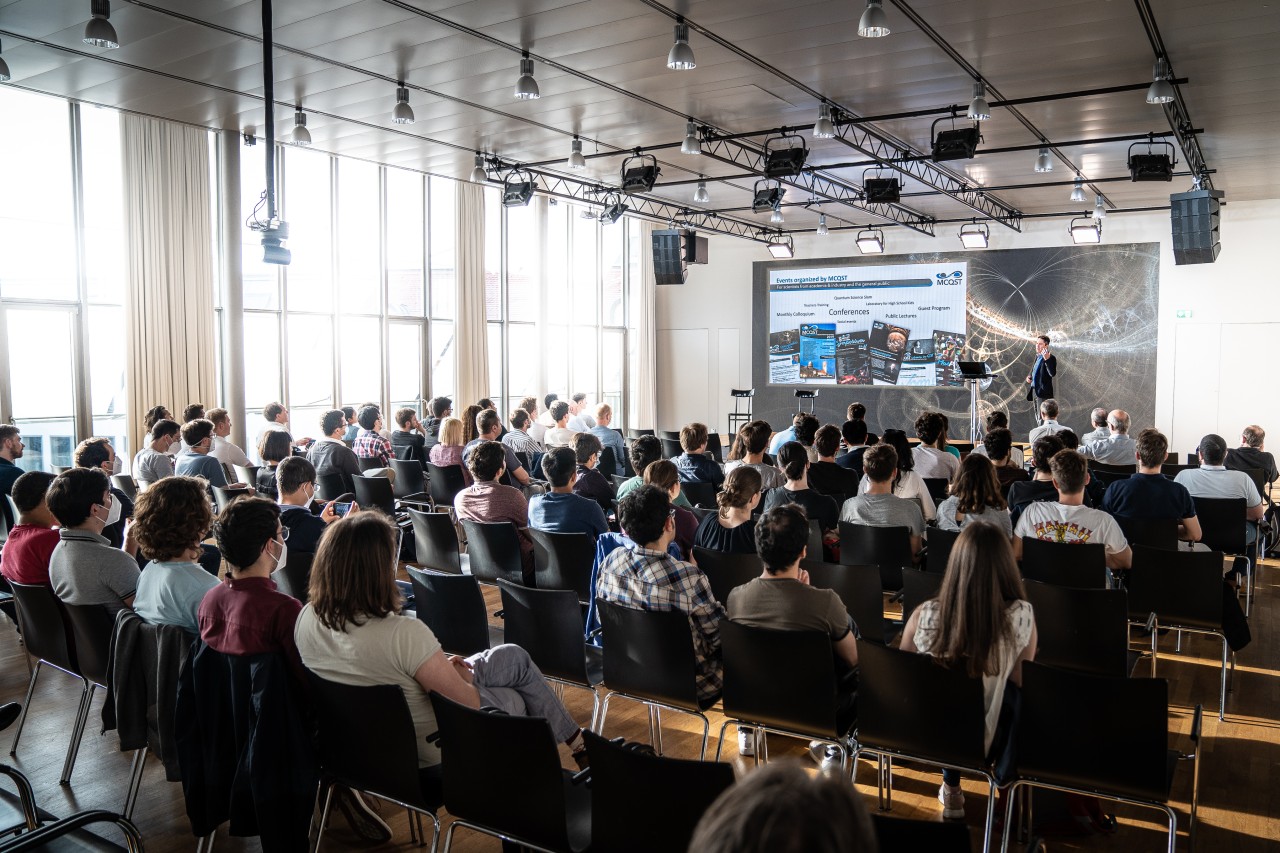30 May 2023
from 14:30
to 16:00
MCQST Colloquium | Yoshiro Takahashi (Kyoto University)
Address / Location
MPI of Quantum Optics | Herbert Walther Lecture Hall
Hans-Kopferman-Straße 1
85748
Garching
Show Map
Hide Map
The MCQST Colloquium Series features interdisciplinary talks given by visiting international speakers. The monthly colloquium covers topics spanning all
MCQST research units and will be broadcast live via Zoom for audiences worldwide. The main goal of the series is to create the framework for idea exchange, to strengthen links with QST leading groups worldwide, as well as to act as an integral part of the local educational environment.
MCQST Colloquium: Yoshiro Takahashi
We are excited to invite you to the colloquium talk by Yoshiro Takahashi (Kyoto University). You can join us in-person at the Max Planck Institute of Quantum Optics at the above address, or online via the Zoom link below:
https://lmu-munich.zoom.us/j/99897798115
Meeting ID: 998 9779 8115
Passcode: mcqst2023
Talk Information
Ultracold ytterbium atoms: from quantum simulation of Hubbard model to new physics search
Ultracold atoms in an optical lattice is an ideal experiemtnal platform for quantum simulation of strongly correlated quantum many body physics as well as for quantum sensor for new physics beyond the Stadard Model of elementary particle physics. In this talk, I will report our recent experiments using ultracold two-electron atoms of ytterbium loaded into an optical lattice. First, I will present our study of an SU(N=6) Fermi-Hubbard model by working with 173Yb. The detailed comparison between theory and experiment allows us to realize a lowest temperature of cold-atom Fermi-Hubbard model [1]. More recently, we have studied the quantum magnetism in an open dissipative SU(6) Fermi-Hubbard system, reveling the dynamical change of the spin correlations from antiferrimagntic to ferromagnetic ones [2]. I will also report our recent efforts in the precision measurement, including the measruement of isotope shifts with the part-per-billion precision, allowing us to obtain a bound of the coupling of a new hypothetical particle beyond Standard Model [3] and the observation of a new clock transition which is highly senstive to physics beyond the Standard Model [4].
References:
[1] S. Taie, et al., “Observation of antiferromagnetic correlations in an ultracold SU(N) Hubbard model”, Nat. Phys. 18, 1356, (2022).
[2] K. Honda, et al., “Observation of the Sign Reversal of the Magnetic Correlation in a Driven-Dissipative Fermi-Hubbard System”, Phys. Rev. Lett. 130, 063001(2023).
[3] K. Ono, et al., “Observation of Nonlinearity of Generalized King plot in the Search for New Boson”, Phys. Rev. X 12, 021033 (2022).
[4] T. Ishiyama, et al., “Observation of an Inner-Shell Orbital Clock Transition in Neutral Ytterbium Atoms”, Phys. Rev. Lett., 130, 153402 (2023).
About the speaker
Yoshiro Takahashi obtained PhD from Kyoto University in Japan in 1992 for the experimental study of impurity solids. After the PhD work, his research is focused on cold atom physics. Starting from working as an assistant professor in Kyoto University in 1990, he is a full professor in the department of physics of Kyoto University since 2007. His group experimentally investigates ultracold atoms for quantum simulation, precision measurement, and quantum computing, using two-electron atoms of ytterbium. His professional honors include American Physical Society Fellowship (2011) and Nishina Memorial Prize (2013).
